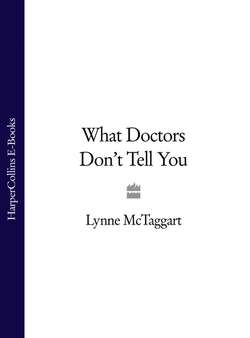Читать книгу What Doctors Don’t Tell You - Lynne McTaggart, Lynne McTaggart - Страница 25
TESTING THE TEST
ОглавлениеBefore you agree to the simplest test, including one for your blood-pressure, ask your doctor some of the following questions:
• Do I really need this test? Is there another, safer way of determining the same thing (such as a thorough interview and physical exam by an experienced medic)?
• What will you advise me to do if the tests are normal/abnormal? If your doctor cannot do anything about any abnormal findings, why take the test?
• What is this test’s track record of accuracy? What are the risks of the test? Of the subsequent treatment? Again, you may have to do your homework, contacting the medical journals, the internet, our offices and even the manufacturers of the test (see pages 246–8 for more suggestions about how to do your own research).
• What are the qualifications of the operators (and how many hours are they likely to have been on duty when you take the test)? If the operators are house officers at the end of a 72-hour stint, you would be wise to insist on more experienced – and rested – parties to handle the equipment.
• When was the equipment last checked for safety/accuracy? This is a particularly pertinent question in a health-care system increasingly strapped for cash.
• What dosage (of radiation or ultrasound, say) will I receive? Are there any protective devices (shields, in the case of radiation) that I can wear? A protective apron worn when you receive dental x-rays can prevent the rest of your body getting ‘zapped’ at the same time.
• Is it possible to use earlier test results so that I am not exposed to further risk? Insist that your dentist keep your x-rays permanently on file. And if you move, insist that they be transferred to your new dentist. If your former dentist balks at this, get your Community Health Council to intervene, on the basis of your concern about ‘dosage constraints’.
• What is the real risk of my developing the condition you’re investigating? If the doctor suggests a mammogram to investigate a breast lump and you’re 15 and have never been exposed to hormones, the risk of your developing breast cancer at your age may be far less than the risk of the test.
All this test-taking presumes that you have symptoms, which is why you went to your doctor in the first place. These days, you’re more than likely to get screened for diseases even before there’s anything wrong with you – and never more so than from the first moment you are ‘diagnosed’ as being pregnant.
